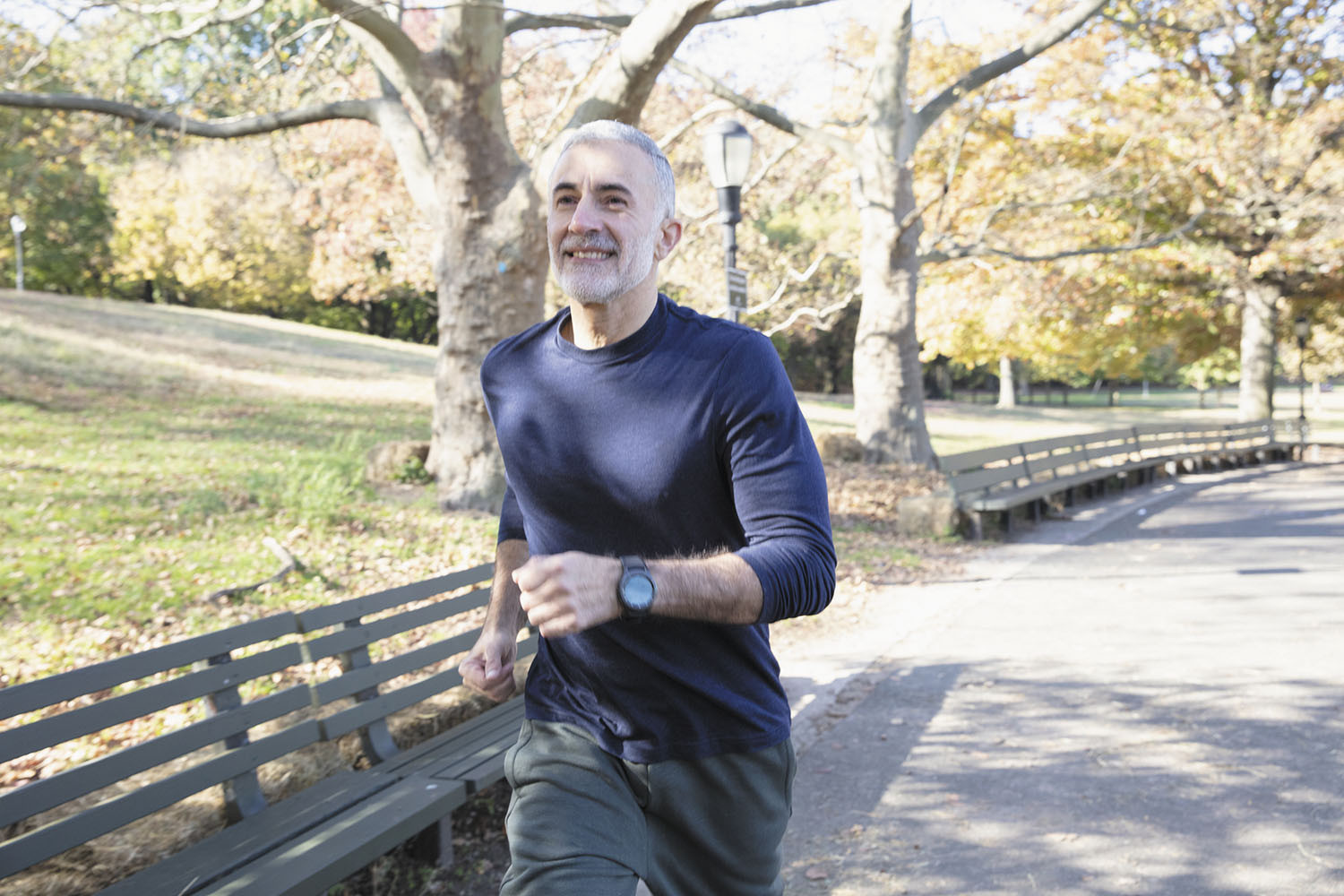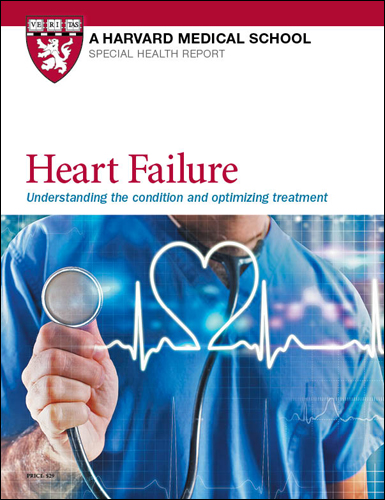Protect yourself from cardiovascular disease
Here's what you should do to lower your risk.
- Reviewed by Howard E. LeWine, MD, Chief Medical Editor, Harvard Health Publishing; Editorial Advisory Board Member, Harvard Health Publishing

An August 2022 report in the Journal of the American College of Cardiology predicts higher rates of cardiovascular disease (CVD) — a category that includes heart disease, heart attack, heart failure, and stroke—over the next three decades.
While this expected increase partly stems from people living longer, suboptimal heart health habits also are to blame, according to Dr. Marc Sabatine, a cardiologist with Harvard-affiliated Brigham and Women's Hospital. "Many older adults may have a general understanding of good heart-health behavior and think they follow it for the most part, but in reality could do better."
The good news is that about 80% of heart attacks and strokes can be prevented if the right preventive measures are taken early enough, according to Dr. Sabatine. The key is to control high blood pressure, high cholesterol, and excess weight, not smoke, and to follow the "big three" healthy-heart habits: diet, exercise, and sleep.
This probably comes as no surprise. This advice has long been the foundation for greater health and longevity. But the best way to meet these standards is to change how you approach heart health over all. "Protection from CVD is not about short-term fixes, but adopting long-term lifestyle changes," says Dr. Sabatine. "And it's never too late to act."
Know your numbers
The first step is to know your cholesterol, blood pressure, and blood glucose levels. (See your doctor if you don't know or if it's been a while since they were last checked.) High cholesterol and high blood pressure are associated with a higher risk of CVD. High glucose can be a sign of diabetes or an increased risk for the disease, which is another risk factor for CVD.
Guidelines suggest men aim for an LDL (bad) cholesterol level of less than 100 milligrams per deciliter (mg/dL), blood pressure below 120/80 millimeters of mercury, and fasting glucose levels less than 100 mg/dL. But these are just recommendations. Your ideal numbers may differ based on your health and individual goals, as determined in consultation with your doctor.
For example, if you already have cardiovascular disease or diabetes, your LDL cholesterol should be less than 70 mg/dL. You will likely need medication in addition to lifestyle changes to achieve this goal.
Also, keep tabs on your weight. About 30% of American adults are classified as overweight. While it's natural for men's weight to increase somewhat with age, even five to 10 pounds over your ideal number is associated with an increased risk for CVD, according to Dr. Sabatine. A recent study found that a five-inch increase in waist size was associated with a more than 150% higher risk for CVD.
The big three
Good diet, exercise, and sleep habits can help manage blood pressure, cholesterol, and weight and provide other health benefits like controlling blood glucose levels and reducing inflammation. Here's how to better pursue each one.
Diet. If you don't already follow a plant-based eating pattern, now is the time to start, as solid evidence shows it greatly minimizes CVD risk.
The diets most studied for heart health are the Mediterranean diet, the DASH (Dietary Approaches to Stop Hypertension) diet, and MIND (Mediterranean–DASH Diet Intervention for Neurodegenerative Delay).
They emphasize foods linked with heart-healthy benefits, such as whole grains, fruits, vegetables, legumes, nuts, and healthy oils like olive oil, while minimizing red meat and processed foods. (Visit /meddiet to learn about how to adopt a plant-based diet.)
Also, reduce alcohol intake. Studies show drinking too much alcohol — more than 100 grams, or about seven standard drinks, per week — is linked with increased heart disease and early death. A standard drink (12 ounces of beer, 5 ounces of wine, or 1.5 ounces of distilled spirits) contains about 14 grams of alcohol.
Check your family history for risk factorsGenetics plays an important role in a person's cardiovascular disease risk. Take a detailed assessment of your family's health history and tell your doctor whether a parent, sibling, or aunt or uncle suffered from cardiovascular disease, died young, or struggled with high blood pressure or cholesterol. "A strong family history of heart disease means you need to work harder on the risk factors you can control," says cardiologist Dr. Marc Sabatine, with Brigham and Women's Hospital. "By knowing your weak spots, you and your doctor can devise a more effective prevention strategy." |
Exercise. Guidelines recommend that adults engage in at least 150 minutes of moderate aerobic exercise per week, which breaks down to 30 minutes on each of five days a week.
If you need motivation, consider joining a walking or running club or hiring a personal trainer. Another way to ensure you get the minimum amount is to spread your total activity time across two areas: purposeful exercise and daily movement.
Purposeful exercises are traditional workouts like brisk morning walks, treadmill running, swimming, and cycling. For daily movement, focus on doing small bouts of activity throughout the day, such as walking for five minutes every hour, or doing two sets several push-ups on the floor or against the kitchen counter.
Also, look for opportunities to add extra movements. For example, wash your car yourself; park farther away from the grocery store entrance; take the stairs instead of the elevator; and do yard work like mowing, planting, and raking. "Every bit of movement can count toward your overall exercise requirement," says Dr. Sabatine.
Sleep. The American Academy of Sleep Medicine and the Sleep Research Society recommend that adults get at least seven hours of sleep per night. Studies have found that less than this amount is associated with heart disease risk factors like higher stress, increased inflammation, high blood pressure, and weight gain.
People with sleep apnea, a disorder in which a person repeatedly stops breathing during sleep, also have a higher risk of heart failure and diabetes.
Image: © SelectStock/Getty Images
About the Author

Matthew Solan, Executive Editor, Harvard Men's Health Watch
About the Reviewer

Howard E. LeWine, MD, Chief Medical Editor, Harvard Health Publishing; Editorial Advisory Board Member, Harvard Health Publishing
Disclaimer:
As a service to our readers, Harvard Health Publishing provides access to our library of archived content. Please note the date of last review or update on all articles.
No content on this site, regardless of date, should ever be used as a substitute for direct medical advice from your doctor or other qualified clinician.
















